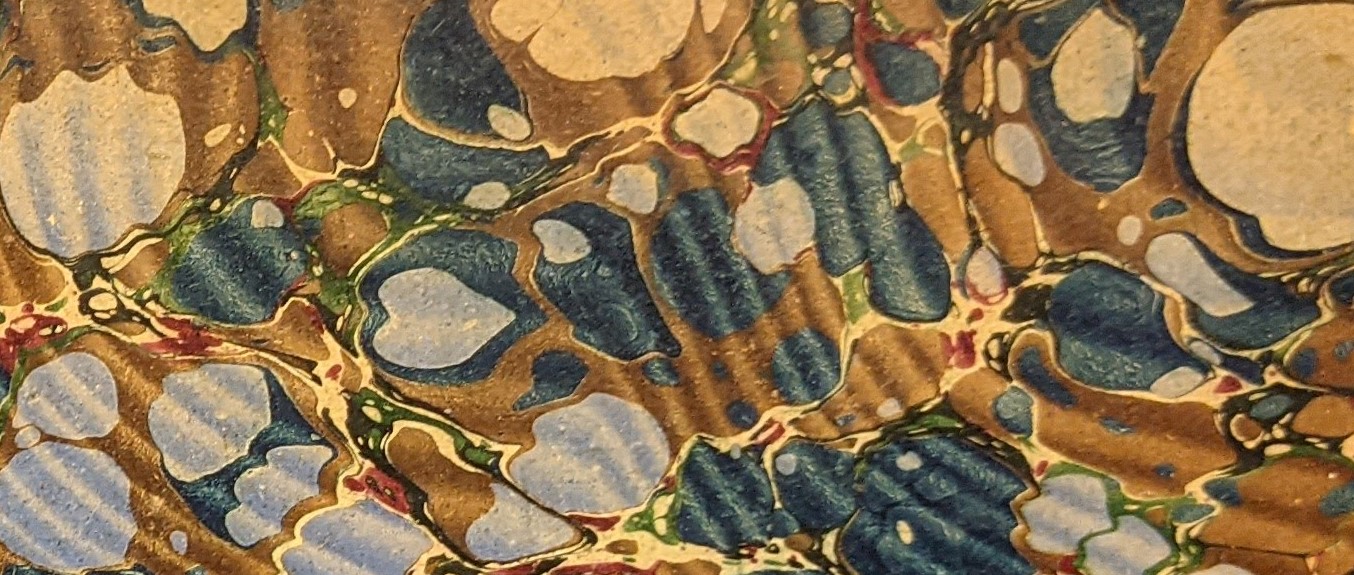For one semester, in the fall of 2019, I received a Virginia Humanities Fellowship, with residence at the Library of Virginia, to study the journey of Eliza House Trist.
A unique, and often hidden figure, Eliza Trist made an historical westward expedition in 1783, two decades before the famed duo of Lewis and Clark, all the while keeping a journal for her dear friend—none other than Thomas Jefferson.
My fellowship gave me the space, funding, and time to spend with the journal and “Dear Eliza,” as I often now call her. I was with her as she rode a horse overland in the snow from Philadelphia to Pittsburgh. Together, we waited out a long, deep winter of 1783-84, and when the ice broke, with her I boarded a flour boat with two strangers heading east down the Ohio. Through her journal, I traveled with her down the Mississippi River, and into Louisiana territory to meet a husband who had gone homesteading, all the while experiencing the land through her 18th-century eyes—the flora, fauna, settlers, and indigenous peoples she detailed.

Cover of Eliza House Trist's journal
My fellowship also required, as it does of each recipient, writing a piece for the Library of Virginia’s UncommonWealth blog. Virginia Humanities also posted a blog and recorded my live-and-in-person Eliza Trist presentation given to the public in both Richmond and Charlottesville. I was overjoyed at the traction Dear Eliza and my project were gaining.
And then the pandemic arrived.
Archives and libraries shut. Future fellowship opportunities dried up or monies were redirected. Publishing submissions ceased. And I was left wondering, besides the meager research I could fund and conduct online, what would become of my project and Dear Eliza? Just when I was beginning to lose all hope, well into 2020 an email appeared in my inbox. Then another. Then another.
While the world stayed home, and people found themselves with more time, a few folks ventured online in search of their own family connections. And Eliza’s, to be precise. First, there was a man in England, who had waded knee-deep into the archives searching for Eliza years ago. He also shared Eliza’s husband’s last name. From Portsmouth, England, Richard Trist had found the UncommonWealth blog and my Virginia Humanities article, and in so doing reached out to me.
Next came an email from another Trist descendant, this time from Australia. She had read the posts and watched the presentation along with her aging father—they too had a cousin working on Trist genealogy, and a family that shared in the, “delight in history, adventure, intrepid women, and the moving stories of forbearers.” Did I need assistance?
And next came a call from Farmington, an 18th-century historic home in nearby Charlottesville owned by the Divers family, with an addition designed by Thomas Jefferson. In search of connections—friends and family who had stayed in the home during the Divers years—they had found records of one such guest. Eliza Trist. The wonderful archivists at Monticello shared my name and presentations with the Farmington Historical Foundation, who then emailed me.
Richard Trist and I have since shared countless emails and happily met on Zoom twice to share Eliza and Trist family documents, some which might also reside with the Australian cousin. A tour of Farmington with the foundation’s Janice Carter and archivist Anne Sloop, yielded more Eliza letters, references, and connections, and dare I say two new historically-minded friends.
The greater result of all these former strangers finding the fellowship-related blogs and the video presentation is two-fold. It has brightened their interest and support of a project that had dwindled about a woman too often overlooked in history. And that, in turn, has rekindled the desire in me to be the one to bring her story to light.
I owe this newfound fire and an expansion of my research, in part, to the Library of Virginia and to Virginia Humanities. When they come together to provide such fellowships, they create more than mere funding, space, and time for scholarship.
The uncommon opportunities they provide authors and historians like me to communicate and share our research so widely can indeed result in unexpected, and in my case delightfully common, connections.
Karen A. Chase is an independent author and historian, and the author of the Revolutionary War novel, Carrying Independence. She is currently working with members of the Daughters of the American Revolution to prove Patriot status for either Eliza House Trist or her mother, Mary Stretch House, of Philadelphia. If you have family documents, genealogical information, or letters pertaining to her project or the two women, you are encouraged to communicate with her via KarenAChase.com/contact.







